Filter by
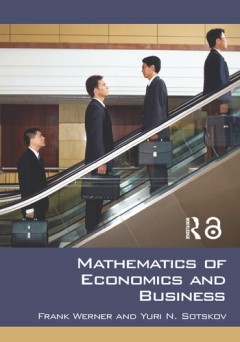
Mathematics of economics and business
For all students who wish to understand current economic and business literature, knowledge of mathematical methods has become a prerequisite. Clear and concise, with precise definitions and theorems, Werner and Sotskov cover all the major topics required to gain a firm grounding in this subject including sequences, series, applications in finance, functions, differentiations, differentials and…
- Edition
- -
- ISBN/ISSN
- 9780203401385
- Collation
- xvii, 516p. : ill.
- Series Title
- -
- Call Number
- 330.0151 WER m
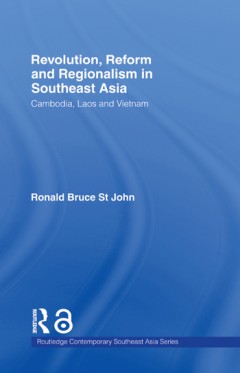
Revolution, reform and regionalism in Southeast Asia : Cambodia, Laos and Vie…
Based on research carried out over the three decades, this book compares the post-war political economies of Cambodia, Laos and Vietnam in the context of their individual and collective impact on contemporary efforts at regional integration. The author highlights the different paths to reform taken by the three neighbours and the effect this has had on regional plans for economic development th…
- Edition
- -
- ISBN/ISSN
- 9780203099476
- Collation
- xiii, 282p. : ill.
- Series Title
- -
- Call Number
- 959.051 ST r
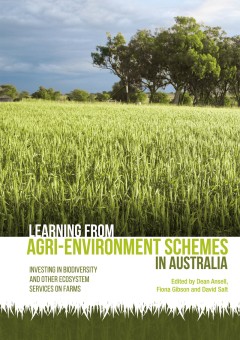
Learning from agri-environment schemes in Australia : investing in biodiversi…
Learning from agri-environment schemes in Australia is a book about the birds and the beef — more specifically it is about the billions of dollars that governments pay farmers around the world each year to protect and restore biodiversity. After more than two decades of these schemes in Australia, what have we learnt? Are we getting the most out of these investments, and how should we do thin…
- Edition
- -
- ISBN/ISSN
- 9781760460167
- Collation
- xxvii, 310p. : ill.
- Series Title
- -
- Call Number
- 333.95160994 LEA l
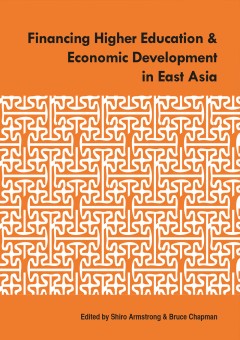
Financing higher education and economic development in East Asia
This volume addresses important issues to do with access to higher education and different models of its financing in the East Asia region. It is enriched by diverse perspectives from vastly different starting points and by the historical and institutional settings in the region. The issues are set out in the context of the value of higher education in economic development and how it contribute…
- Edition
- -
- ISBN/ISSN
- 9781921666636
- Collation
- viii, 281p. : ill.
- Series Title
- -
- Call Number
- 379.1214 FIN f
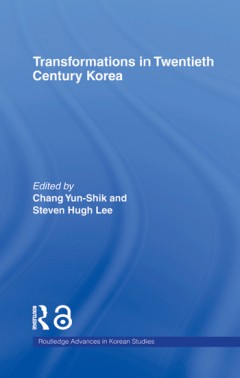
Transformations in twentieth century Korea
This edited collection traces the social, economic, political, and cultural dimensions of Korea’s dramatic transformation since the late nineteenth century. Taking an interdisciplinary approach, the chapters examine the internal and external forces which facilitated the transition towards industrial capitalism in Korea, the consequences and impact of social change, and the ways in which Korea…
- Edition
- -
- ISBN/ISSN
- 9780203968277
- Collation
- xiii, 380p. : ill.
- Series Title
- -
- Call Number
- 330.95195043 TRA t
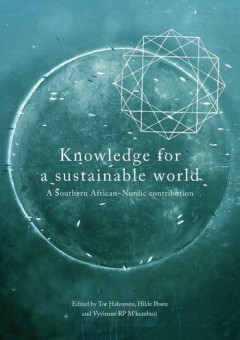
Knowledge for a sustainable world : a Southern African-Nordic contribution
The search for answers to the issue of global sustainability has become increasingly urgent. In the context of higher education, many universities and academics are seeking new insights that can shift our dependence on ways of living that rely on the exploitation of so many and the degradation of so much of our planet. This is the vision that drives SANORD and many of the researchers and instit…
- Edition
- -
- ISBN/ISSN
- 9781928331049
- Collation
- xi, 244p. : ill.
- Series Title
- -
- Call Number
- 338.96807 KNO k
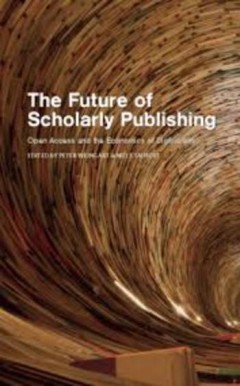
The future of scholarly publishing : open access and the economics of digitis…
The formal scientific communication system is currently undergoing significant change. This is due to four developments: the digitisation of formal science communication; the economisation of academic publishing as profit drives many academic publishers and other providers of information; an increase in the self-observation of science by means of publication, citation and utility-based indicato…
- Edition
- -
- ISBN/ISSN
- 9781928331537
- Collation
- ix, 277p. : ill.
- Series Title
- -
- Call Number
- 070.57973 FUT f
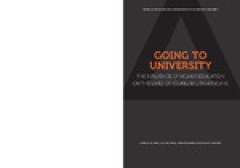
Going to university : the influence of higher education on the lives of young…
Around the world, more young people than ever before are attending university. Student numbers in South Africa have doubled since democracy and for many families, higher education is a route to a better future for their children. But alongside the overwhelming demand for higher education, questions about its purposes have intensified. Deliberations about the curriculum, culture and costing of p…
- Edition
- -
- ISBN/ISSN
- 9781928331698
- Collation
- ix, 164p. : ill.
- Series Title
- -
- Call Number
- 378.68 GOI g
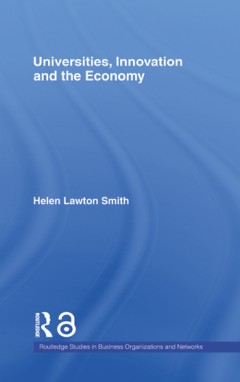
Universities, innovation and the economy
Universities are increasingly expected to be at the heart of networked structures contributing to society in meaningful and measurable ways through research, the teaching and development of experts, and knowledge innovation. While there is nothing new in universities’ links with industry, what is recent is their role as territorial actors. It is government policy in many countries that univer…
- Edition
- -
- ISBN/ISSN
- 9781134344185
- Collation
- xii, 265p. : ill.
- Series Title
- -
- Call Number
- 338.476200094 SMI u
 Computer Science, Information & General Works
Computer Science, Information & General Works  Philosophy & Psychology
Philosophy & Psychology  Religion
Religion  Social Sciences
Social Sciences  Language
Language  Pure Science
Pure Science  Applied Sciences
Applied Sciences  Art & Recreation
Art & Recreation  Literature
Literature  History & Geography
History & Geography